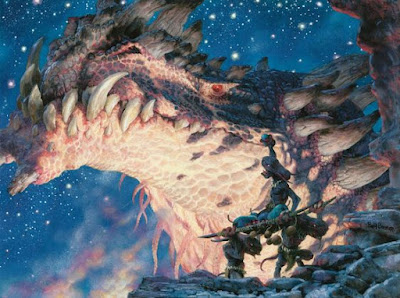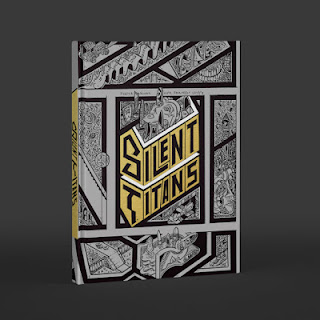The Science of Friend (Social Mechanics)
If you like... wear a neat hat then people will think you are Neat. People who think you are Neat will do one of the following things at the GM's choice:
- Turn to their friends and say, "Wowee zowee that's a neat dude!"
- Say to you, "Hello, neat dude, might I engage you in conversation or offer you discounts on my wares?"
- Offer you a chance to be Friend.
If someone offers you a chance to be Friend, then you must engage in Friend behavior which includes:
- Saying like... nice stuff to them like "Your hair looks swell" or "I appreciate your taste in artisanal breads."
- Offer them a thoughtful gift like a nice sweater made of your own hair or even a locket containing a picture of their dead dog.
- Bake them a Friend Pie.
In order to bake the Friend Pie requires you to:
- Make dough
- Stuff pie with delicious meats, cheeses, or fruits like the organs of a different Friend or an Apple from the Tree of Knowledge or razor blades.
- Bake pie in a big oven for like 30 minutes or until Golden Brown.
To determine whether something is Golden Brown, you may, once every five real life minutes ask the GM, "Is it Golden Brown, daddy?" The GM must say, "Let us see, my beautiful daughter." and call for a coin flip. If the player calls the coin flip correctly, then it is Golden Brown. Both GM and Player must intone, "Yummy yummy 'tis just as dear Oma would make, God rest her soul."
If you perform two or more Friend Actions then you and the person are now Friend. Friend will do any of the following Friend Services for each other. Whenever Friend performs one of these actions, other Friend accrues Emotional Debt. Other Friend must perform Friend Services equal to pay off Emotional Debt:
- Talk to each other about Stacy who was mean to you and slept with your dad
- Make a blood pact to kill Stacy and never tell a soul
- Pick you up from your boyfriend's house after pooping in his litter box and finding out his cat is dead
- Build a ritual pyre and sacrifice Stacy to the Dark Lord Malobak
When you sacrifice Stacy to the Dark Lord Malobak, the Dark Lord will do one of the following things for you:
- Say to his endless nightmare legions and Demon Lord Poker Game table, "Gee whiz these are some swell dudes!" They will think you are Neat.
- Give you like... a neat hat.
- Offer you Stacy's still horribly beating heart which might make for a lovely meat for a Friend Pie.
- Offer you a chance to be Friend.
Ok but seriously, let me take a crack at some real social mechanics:
The best social mechanics I can think of are those that take the potential of dealing with a creature peacefully as seriously as dealing with them violently. So most monster stat blocks just list their abilities and stats. Morale, Mien like from Troika, Reaction Rolls, these all turn just a combat encounter into an opportunity for peaceful interaction.
Then, a monster or NPC stat block should include things they want, how they interact with creatures like the players and their main motivations. These then become things the players can take advantage of and use to negotiate with the NPCs. These kinds of mechanics focus on the fiction rather than stats and ability checks. I even think combat should focus more on the fiction rather than stats and ability checks. That is why I made Weirdways.
Any rock paper scissors minigame or argument system or step-by-step guide to social interaction all are going to detract from what is most interesting about social interaction in role-playing games: the social interaction! I want to talk to weird pale frogmen in sewers about how to turn their slime dam extortion racket into a sustainable business. I want to bandy sly turns of phrase with the Lady Barbalane of House Calafrax. I want to make an impassioned speech for humanity and mercy before the masses eager to double what blood has already been spilled this dark day. And it is awful hard to make such things work unless you have a Game Master who can appreciate what you are doing and players that can follow along, but I would rather have the blessed silence of rules upon the subject than their pointless yammering intruding on what would otherwise be an awesome moment.
Here is my best attempt at social mechanics:
If a player does any of the following things, they win the social interaction:
- Take advantage of their target's wants, needs, personality, or sympathies.
- Present a well-reasoned argument.
- Be awesome or wonderfully clever.
The extent to which they win ought to be gauged by how many of these they do at once as regulated by the rule of common sense. Write up your monsters and NPCs with information regarding their wants, needs, personalities, and sympathies. Give your players ways to learn this information. Let them loose.
Have fun!



This was weird and disturbing in all the right ways lol.
ReplyDeleteI really like the way you handle social dynamics in Weirdways. I've also taken some similar approaches, as far as trying to make physical Conflict and other kinds of Conflict at parity.
In my case, particularly with MRD but I was often doing this even before I created a specific system for it, I make social, intellectual, emotional, etc. kinds of Conflict all operate mechanically the same, whether as a Save or an actual Conflict.
On the face of it, this might seem to run counter to the idea of actually roleplaying it and mechanics not getting in the way, but I actually don't think that necessarily is the case, and it serves a different purpose.
Because the thing is, if you have a whole separate set of mechanics for physical Conflict and everything else is like Saves or Skill checks whatever, as is often the case, it implies that physical Conflict is uniquely a focus of the game. At the same time, people are often so conditioned to expect physical Conflict mechanics, that if it's not there, that in itself comes with the baggage or preconceived notions of being "that kind of game", like a storygame or a very rules light game, or something with a narrowly scoped focus.
So having Conflict mechanics that are like most games' physical conflict mechanics, but applied to all kinds of Conflicts, is basically a way of saying "no really, it's all the same".
But even then, usually the way I handle it, as with other things, is that it's all roleplay, and only if there is a significant likelihood of failure, and where failure would be interesting, do I start pulling out the Saves and/or Conflict, but that still means PCs have a whole other set of tools to dynamically interact; where depending on the context, in the same Conflict, one PC could be doing a Save for some kind of odd maneuver, another could be engaging in some kind of social Conflict or negotiation trying to talk down the situation, while another PC is engaging in physical Conflict.
Because I think that's also often part of it- if three of the PCs are fighty-people, and one is talky, and maybe one is stealthy, normally this turns into either a split the party situation (which I'm not opposed to but has its own baggage), or half the party are sitting around waiting situation. But by using the same kinds of mechanics for all kinds of Conflicts and allowing Saves and Conflicts to be used interchangeably, then all of these PCs with all of these approaches can all engage at the same time and interactively, opening up new possibilities without the need for new kinds of mechanics that in themselves limit things further.
Which again, I think is pretty similar to how we've been doing things with Weirdways and is a big part of why I've enjoyed that so much as well.
I appreciate the having mechanics to say "this isn't special." I think that's a good approach. Whatever mechanic gets out of the way for me, is a good mechanic for social studfy
Delete